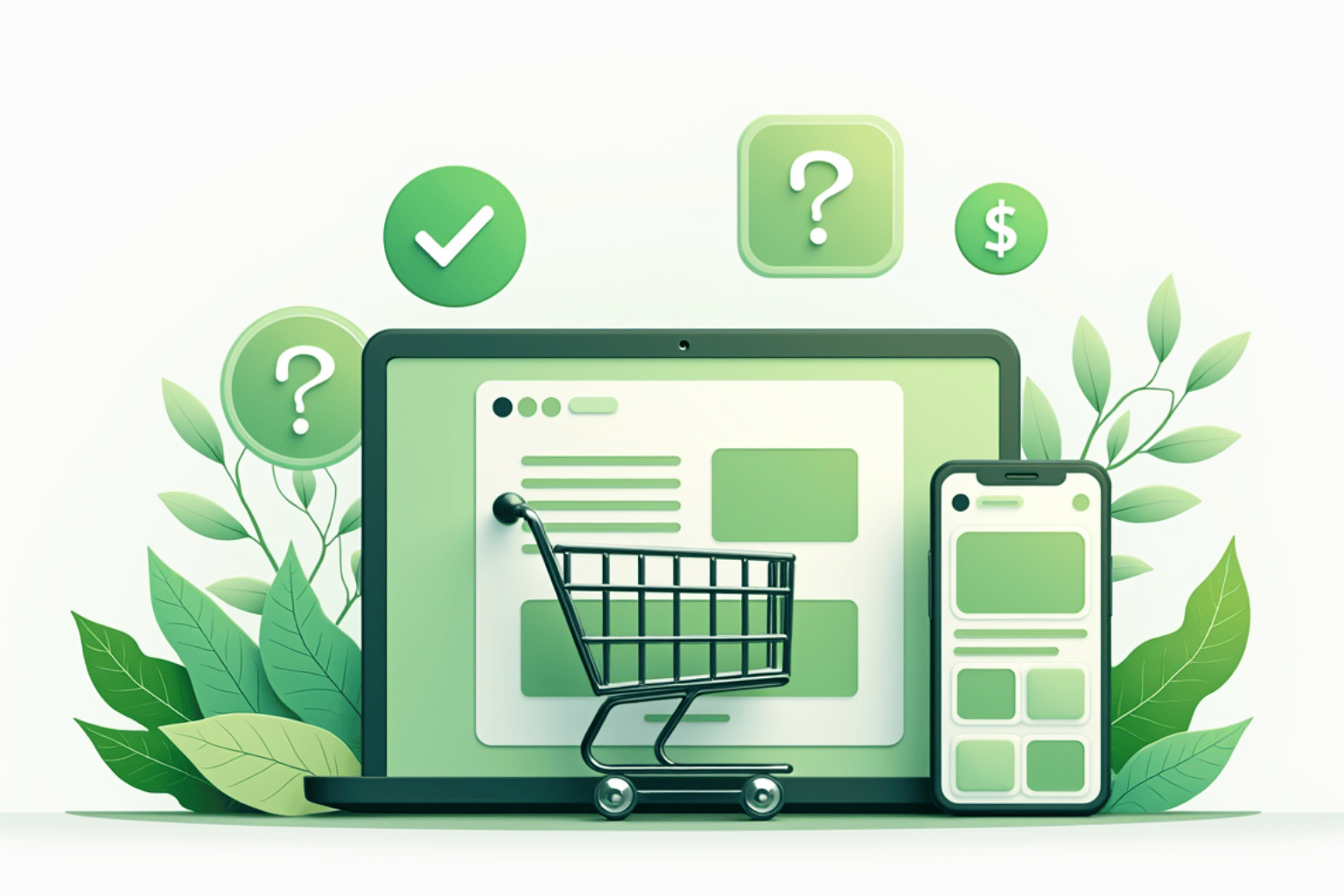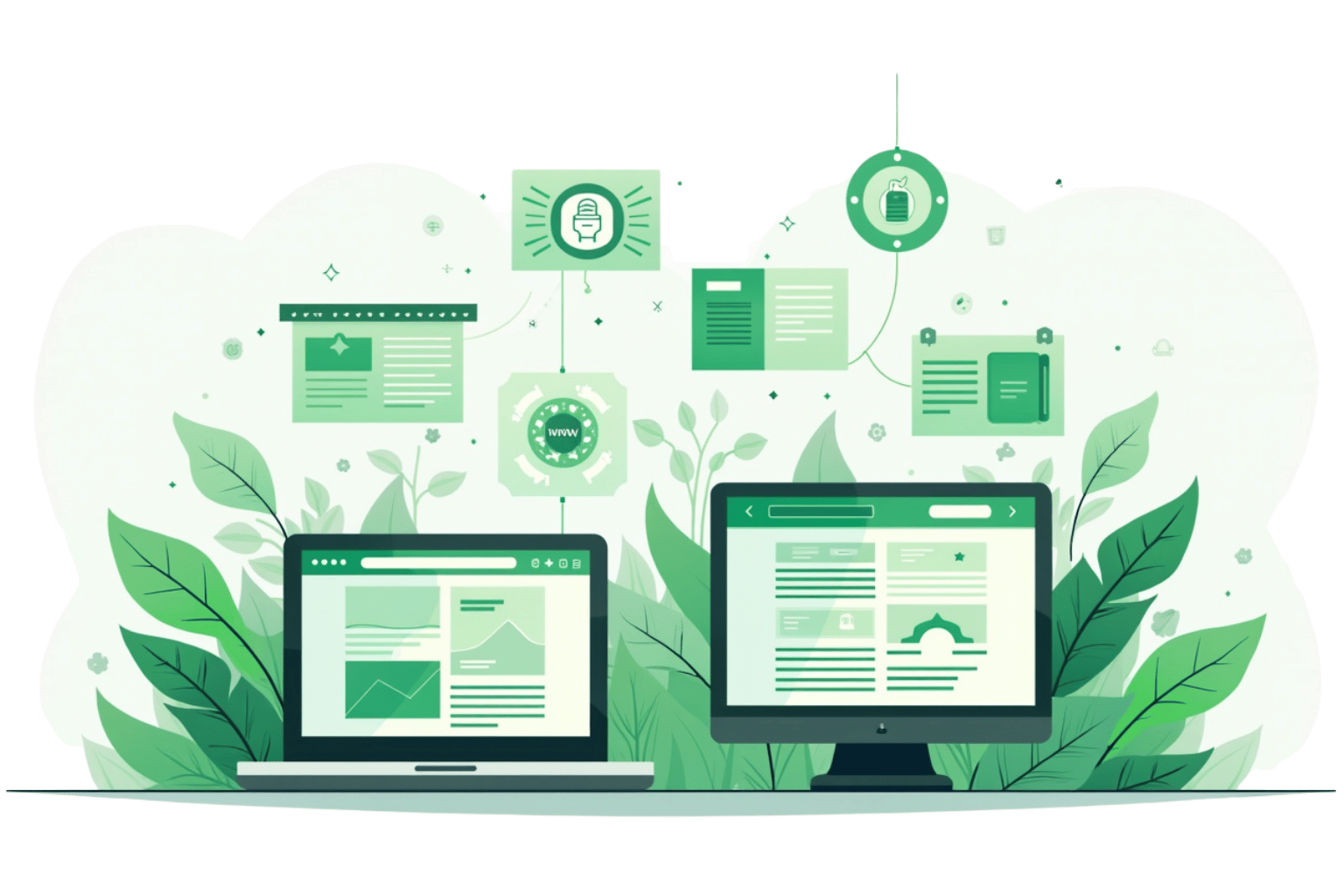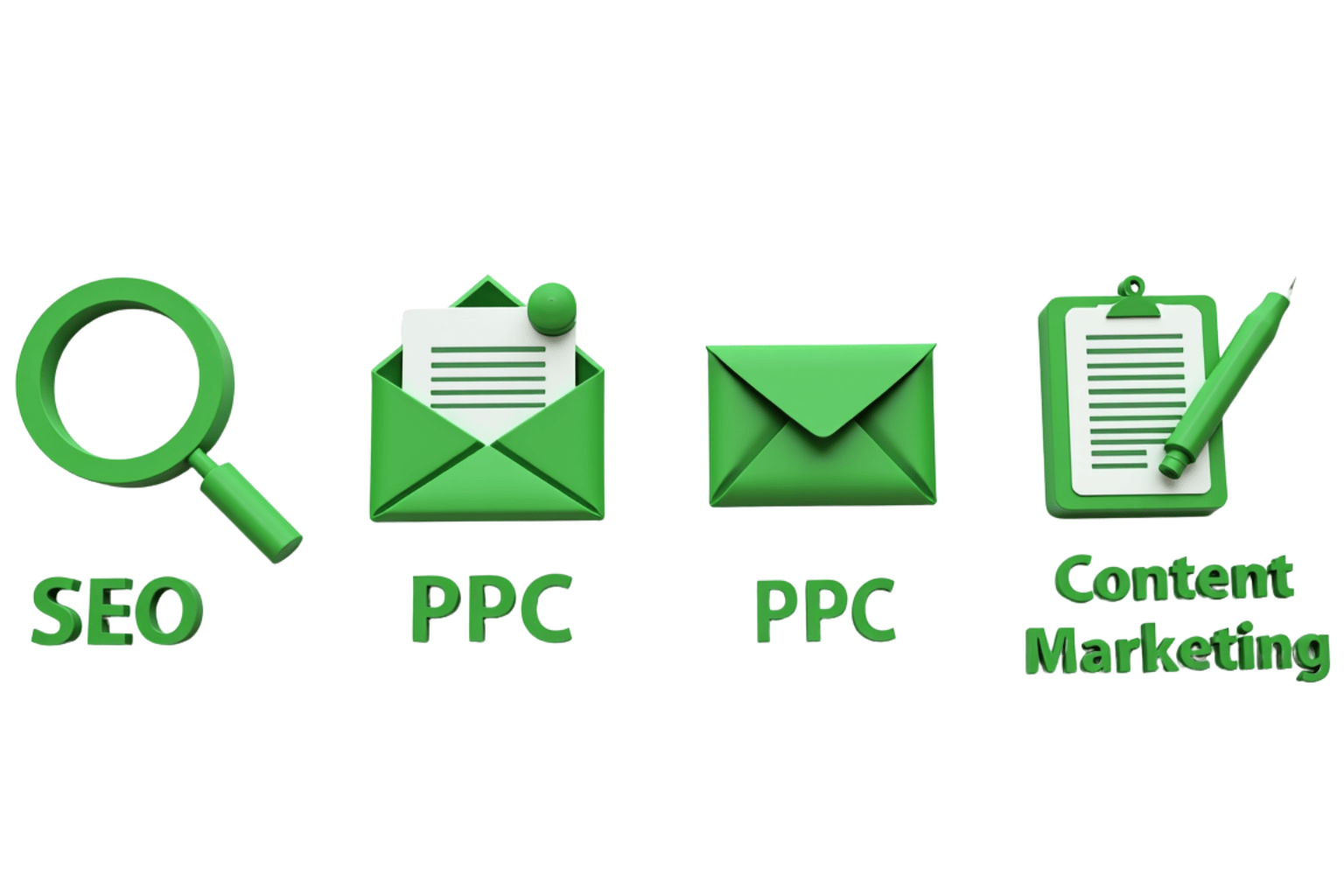
The Ultimate Guide to the Best Ecommerce Platforms for Small Businesses
The Ultimate Guide to the Best Ecommerce Platforms for Small Businesses
Ecommerce businesses have grown significantly in today's rapidly changing environment. However, as an owner of a small business, you must be cautious about which platform to use. This is the reason we have provided you with the guide, “The Ultimate Guide to The Best Ecommerce Platforms for Small Businesses.” The best ecommerce platform for small business must be user-friendly and make it easy to upload and manage content.
Small businesses can streamline their operations with the best ecommerce platform for small business, taking advantage of Amazon’s FBA for order fulfillment or Shopify and Big Commerce for independent online stores. The best ecommerce platform for small business offers the ability to easily integrate digital marketing tools. Your primary goal should be to achieve a sizable return on investment, maximizing exposure for the least amount of money spent.

The best ecommerce platform for small business enables you to manage your ecommerce online store and sales channels seamlessly. The best ecommerce platform for small business will have numerous beneficial add-ons for their users. It is their responsibility to actively promote their online store to the target audience. A vital factor is the types of online and offline promotional campaigns that eCommerce stores use. It is essential to use multiple channels to attract new customers. The best ecommerce platform for small business will have a responsive interface that will make communication effortless.
In summary, in order to identify the best ecommerce platform for small business, we suggest focusing on local small businesses, which have e-commerce platforms integrated with the online store. Using business local e-commerce platforms can propel the business to new heights.
1.What is custom ecommerce development and when to choose it over ready-made platforms
An online shop is quickly becoming a necessity for both businesses and consumers. The increase in the number of internet users has created a demand for online stores for different businesses. Several businesses still prefer the traditional way of setting up a shop on the street. For them, the costs of setting up a brick-and-mortar shop is a better investment compared to setting up an online shop. But, with the continuous rise in the number of internet users, online shopping is becoming the way of the future. Therefore, businesses must choose the ecommerce platforms that best suit their needs.

In the ecommerce world, ready-made platforms and custom ecommerce development have their own advantages and disadvantages. Ready-made platforms are often a better option for small and medium businesses. However, custom ecommerce development is usually a better option for medium to large businesses.
What is custom ecommerce development?
Custom ecommerce development refers to the process of creating an online shop for a specific business from the ground up. It is a custom-made solution that best fits the requirements of a business.
Custom ecommerce development is created from scratch, specifically for one business. This means that the business will not have to share its ecommerce website with its competitors.
Custom ecommerce development means that everything is planned accordingly from the initial concept. Since it is created for a specific business, ecommerce designers have the freedom to build the architecture to suit the needs of the business.
Why choose custom over ready-made platforms?
Websites built using ready-made platforms often come with a lot of features that a business may not need. This adds unnecessary clutter that makes navigation difficult. With custom ecommerce development the site is built in such a way that it only has the features that a business actually needs.
With custom ecommerce development, businesses have the flexibility to build the ecommerce architecture the way businesses find most suited for their operations. Ready-made platforms usually have features that the business does not need, and the business is often stuck with them as they cannot be modified.
With ready-made platforms, most of the design options are locked. This may not work for every business, and with custom ecommerce development, they can design their online shop the way they want.
In conclusion, online shopping is becoming the way of the future and with the increase in the number of internet users, the demand for online stores is on the rise. There are two options for creating an online shopping site for a business, custom ecommerce development and ready-made platforms. These two have their own advantages and disadvantages and businesses should choose one that is best suited for their needs.'
2. Essential features for a successful ecommerce clothing website
With the dramatic increase in online shopping over the years, entrepreneurs have also started pursuing opportunities in the ecommerce industry. There are many factors to consider when creating a shopping website, but one product category that seems to have the most potential are clothes. In this article, we are going to explore the features that will make a successful ecommerce clothing website.

User Friendly Interface
One of the most important factors for any successful website is the user interface, and for an ecommerce clothing website, it is one of the most crucial factors. When a potential user visits the webpage for the first time, an interface that is smooth and pleasant to the eyes will make the user want to browse effortlessly.
Search Functionality
When it comes to an ecommerce clothing website, it is important to allow users to freely cancel and search for any type of clothing they want. Websites that have categorized clothes and offer access and aids to search are bound to have more traffic. In this scenario, a well-managed categorized database will help store multiple clothing items.
Multiple Payment Options
One of the most important features of an ecommerce clothing website is the presence of multiple payment methods. This is to ensure payment for all customers, even those who encourage offline transactions.
Detailed Product Descriptions
Not everyone who visits clothing shopping websites is a frequent online shopper, and most users face difficulties In trying to match their clothing, shoes, and other accessories. an ecommerce clothing website must help frequent and non frequent users by help explain to match various items so they know exactly how to wear them.
Responsive Customer Care Support
In the world of business, relationships with customers or consumers is as important as any other part. For every business, it is important to maintain good relationships, and for an ecommerce clothing website, an online chat feature that will facilitate the sharing of queries is an ideal approach.
In conclusion, clothes are an important part of any person’s wardrobe regardless of gender. The presence of various sites makes it easy to obtain essentials. To make successful ecommerce clothing website, use the features that we have discussed in this article. For more ideas, visit other sites and browse various clothes online.
3.How Ecommerce CRM Improves Customer Retention and Lifetime Value
In recent years, online shopping has surged in popularity, leading to the evolving ecommerce landscape we see today. A crucial aspect of running a successful online business is the effective management of customer relationships. From a business perspective, one of the most effective methods of customer management is the utilization of an ecommerce CRM or Customer Relationship Management software. An ecommerce CRM not only streamlines business operations but also enhances client connections. This software helps in gathering and analyzing vital data about customers to optimize client relations. In this article, we will discuss how ecommerce CRM helps boost customer retention and customer lifetime value.

Customer Retention
Retention of customers is one of the most vital ecommerce business metrics. An ecommerce CRM helps online retailers and service providers to retain existing customers by keeping a close watch on their purchasing behaviors. An ecommerce CRM has smart features that alert business owners about their customers' specific shopping patterns, and helps in personalizing the shopping experience. For instance, online retailers can recommend items when a client logs in to their account, resulting in a more tailored shopping experience.
Customer Lifetime Value
Customer Lifetime Value or CLV is the projected revenue that a business can make from a customer account throughout the business relationship for a specific period of time. CRM systems support effective marketing strategies. An e-commerce CRM collects sales data and marketing information to determine which segment to target. This will aid marketers in sending out effective and targeted promotions to the clients. CLV can be maximized by selling value-added services to existing customers, resulting in deepening the business relationship.
In summary, an ecommerce CRM is an indispensable tool that helps ecommerce businesses to increase customer satisfaction and loyalty. An ecommerce CRM adds the most value to customer relationship management by bolstering business strategies, maximizing cost efficiency and improving overall company performance. The agile data analytical systems of eCommerce CRM positively influence customer relationships by improving customer support, and retention and tracking clients.
The above-highlighted factors illustrate how e-commerce CRM enhances customer retention and lifetime value.
4.Overview of ecommerce marketing services available (SEO, PPC, email marketing, content marketing)
In the fast-evolving world of online business, choosing the right ecommerce marketing services is crucial. Businesses have taken notice of the importance of online marketing and have adopted ecommerce marketing services such as Email Marketing, Social Media Marketing, PPC, and remarkable SEO services. PPC marketing is a valuable option that certainly helps increase traffic to your online business within a short periode of time provided that you are using the right PPC networks. Ecommerce marketing services like Pay Per Click improves conversion and is antithetical to the philosophy of Search Engine Optimization(SEO) since SEO advocates slow, steady and organic growth of traffic and customers. Email Marketing is another very valuable and effective ecommerce marketing services that have a number of advantages over the other options. Content Marketing is another option of promoting ecommerce. Like all other ecommerce marketing services, content marketing has its advantages and disadvantages.

Overview on the Use of SEO and PPC in ecommerce marketing services
In the fast-evolving world of online business, choosing the right ecommerce marketing services is crucial. Businesses have taken notice of the importance of online marketing and have adopted ecommerce marketing services such as Email Marketing, Social Media Marketing, PPC, and remarkable SEO services. PPC marketing is a valuable option that certainly helps increase traffic to your online business within a short periode of time provided that you are using the right PPC networks. Ecommerce marketing services like Pay Per Click improves conversion and is antithetical to the philosophy of Search Engine Optimization(SEO) since SEO advocates slow, steady and organic growth of traffic and customers. Email Marketing is another very valuable and effective ecommerce marketing services that have a number of advantages over the other options. Content Marketing is another option of promoting ecommerce. Like all other ecommerce marketing services, content marketing has its advantages and disadvantages.
In this digital era, businesses are leveraging every possible channel to maximize their reach. Ecommerce marketing services provide a broad spectrum of opportunities, including Search Engine Optimization (SEO), Pay-Per-Click Advertising (PPC), email marketing, and content marketing. Each of these techniques can contribute significantly to enhancing a company’s online presence. Outlined below are the major components of ecommerce marketing services.
- SEO. Search Engine Optimization can be divided into three main categories: on-page and off-page SEO, and technical SEO. Each player interacts and contributes to the success of the entire system, and thus omitting any aspect will weaken the whole. Online google algorithms consider a variety of elements to get the best and most relevant results relevant to a user query. As a result, proper utilization of keywords and relevant content proves invaluable to a business.
- PPC. Pay-Per-Click Advertising is an online marketing activity in which a company pays a certain amount for every click on their advertisement. Clicks are associated with advertisement impressions, which allow for expanded the market reach. There are various payment options that can be selected, and the amount spent is determined by the amount of exposure and advertisement displayed.
- Email marketing. Email marketing is classified into three broad categories: email for direct marketing, newsletters and promotion mail.
- Content marketing. Content marketing can be differentiated via three main attributes: technologies utilized, goals of the marketing techniques, and marketing audience.
In today’s world, ecommerce marketing services have gained a tremendous amount of popularity and have expanded to a global revenue. Online presence can be increased significantly using both of the methods implied earlier. Implementing previously described strategies can foster business success. For best results, these ecommerce marketing services should be used in combination.